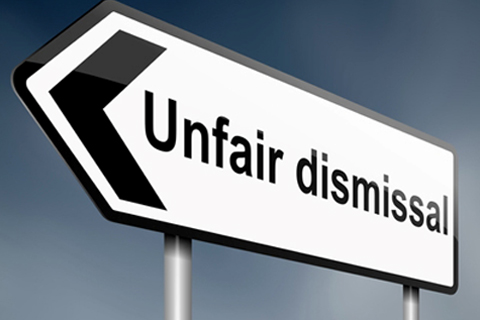A former employee’s unfair dismissal claim has been given new life at a Fair Work Commission hearing. A worker was granted permission by the Commission to pursue her unfair dismissal claim, 64 days outside the 21 day statutory limit.
Senior Deputy President (Snr DP) Lea Drake considered the worker’s statement in support of the application and supporting medical certificates in allowing the worker’s application additional time. Critically, Snr DP Drake took a broad view of the meaning of “exceptional circumstances” in s 394(3) of the Fair Work Act 2009 (the Act), finding that there is no requirement for a “catastrophic event” to satisfy the requirement.
The Fire Trucks Australia worker was dismissed late last year for abandonment of her employment. However, the worker contends that she supplied medical certificates to her Managing Director that adequately explained her absence.
Writing in support of her delayed claim, the worker alleged that the employer terminated her employment in October, but did not notify her for two months.
The worker’s statement refers to a December meeting with her representative and her Managing Director. She alleges that after the meeting, the Managing Director avoided her representative’s phone calls, emails and texts. The worker claims the Director delayed proceedings so that she “could not take him for unfair dismissal”.
The worker claims she had a mental breakdown following this meeting and was “in no state” to file for unfair dismissal. Her representative provided medical certificates supporting this claim in a telephone conference some months later.
On her representative’s advice, the worker filed a late lodgement for unfair dismissal and later applied for an extension of time for lodgement under s 394 of the Act.
Section 394 of the Act permits an extension of time for an application where the Fair Work Commission is satisfied there are “exceptional circumstances”.
Snr DP Drake applied the meaning of exceptional circumstances used by the Fair Work Commission Full Bench in Nulty v Blue Star Group Pty Ltd, these being circumstances which are “out of the ordinary, or unusual, or special, or uncommon”.
Snr DP Drake considered the worker’s claim that she attempted to resolve the matter with her employer and her poor health following her dismissal constituted “exceptional circumstances” as contemplated by s 394 of the Act. Snr DP Drake was “persuaded that [the worker’s] difficulties were out of the ordinary, unusual or uncommon” and allowed an extension of time.
Snr DP Drake took the view that exceptional circumstances under s 394 of the Act did not require “the applicant for that extension of time be overtaken by some catastrophic event”.
“Reasons for delay in the category of extreme events are not necessary to meet the test”, she said.
Fire Trucks Australia chose not to oppose the application for an extension of time.
When ending employment, employers must ensure there is procedural fairness. Trying to slow the process or game the system will not be viewed favourably by the Commission and will damage an employer’s position should the matter go to a hearing.
Before taking any steps to end employment, call NRA Legal on 1800 RETAIL (738 245) to discuss your position at law and the best process to ensure the employment relationship is ended correctly and fairly.
Dominique Lamb, Director of Legal Services and Principal of NRA Legal

